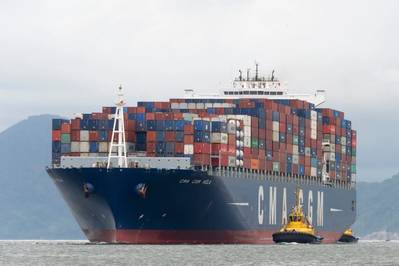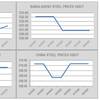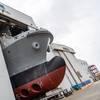Brazil's Container Port Operator Seeks to Avert 'Congestion' Surcharge
TCP, an arm of China Merchants Port, is working to dissuade a logistics firm from applying a surcharge on outgoing cargos at South America's largest container terminal, TCP Commercial Director Carolina Brown said.
France-based logistics firm CMA CGM's $150 surcharge, which would take effect on July 1, could impact the cost of shipping goods through Brazil's main refrigerated container terminal, which is also the world's biggest chicken export corridor.
"We have already contacted CMA, asking first for clarification of the measure but also for them to review it," Brown told Reuters late Wednesday.
CMA CMA did not immediately reply to repeated requests for comment.
The company announced the surcharge last week, citing "congestion" at Paranagua port. The move highlights logistical challenges faced by Brazil, a farm powerhouse and one of the world's ten largest economies.
CMA said the surcharge would apply to cargo headed to the U.S. East Coast, U.S. Gulf, Canada, Mexico and Central America, among others.
Brown said paper, wood and refrigerated cargo consignments could be affected if the surcharge is confirmed.
The executive said Paranagua and other Brazilian container ports were facing a surge in demand, which coupled with operating contingencies at competing terminals in Santos and Santa Catarina state, have spurred "a perfect storm."
Felipe de França, TCP's manager of operations, said more demand drove up ship waiting times from an average of 3.5 hours, a record achieved at Paranagua, to close to 48 hours in recent weeks. The waiting time has since dropped to about 12 hours at Paranagua's container terminal, while vessels at competing hubs still face a week's wait, he said.
Brown said Paranagua's container terminal is also absorbing diversions of cargo and receiving ships from other ports.
"We are operating without operational restrictions," she said. "By contrast, a surcharge does not reflect our level of service."
(Reuters - Reporting by Ana Mano; Editing by Shinjini Ganguli)












